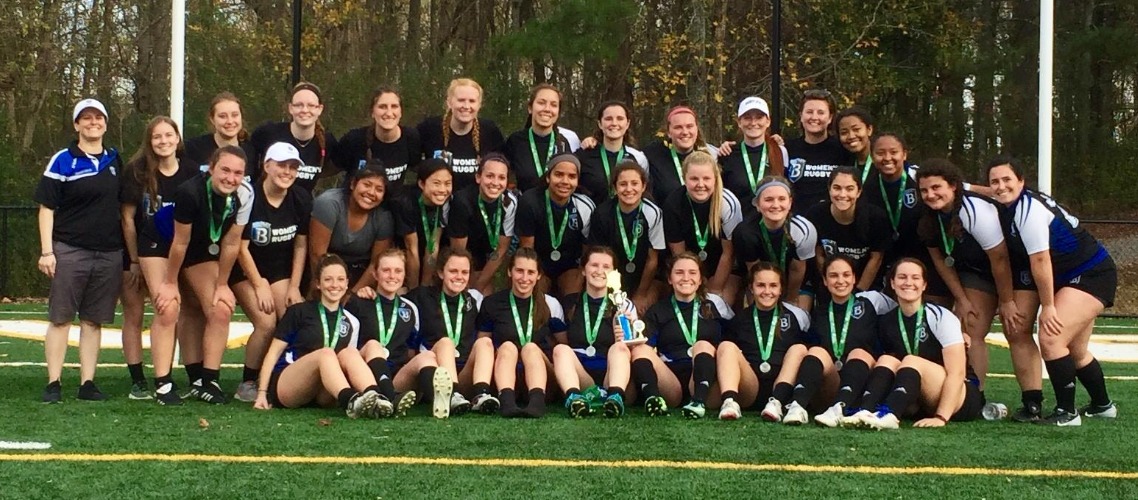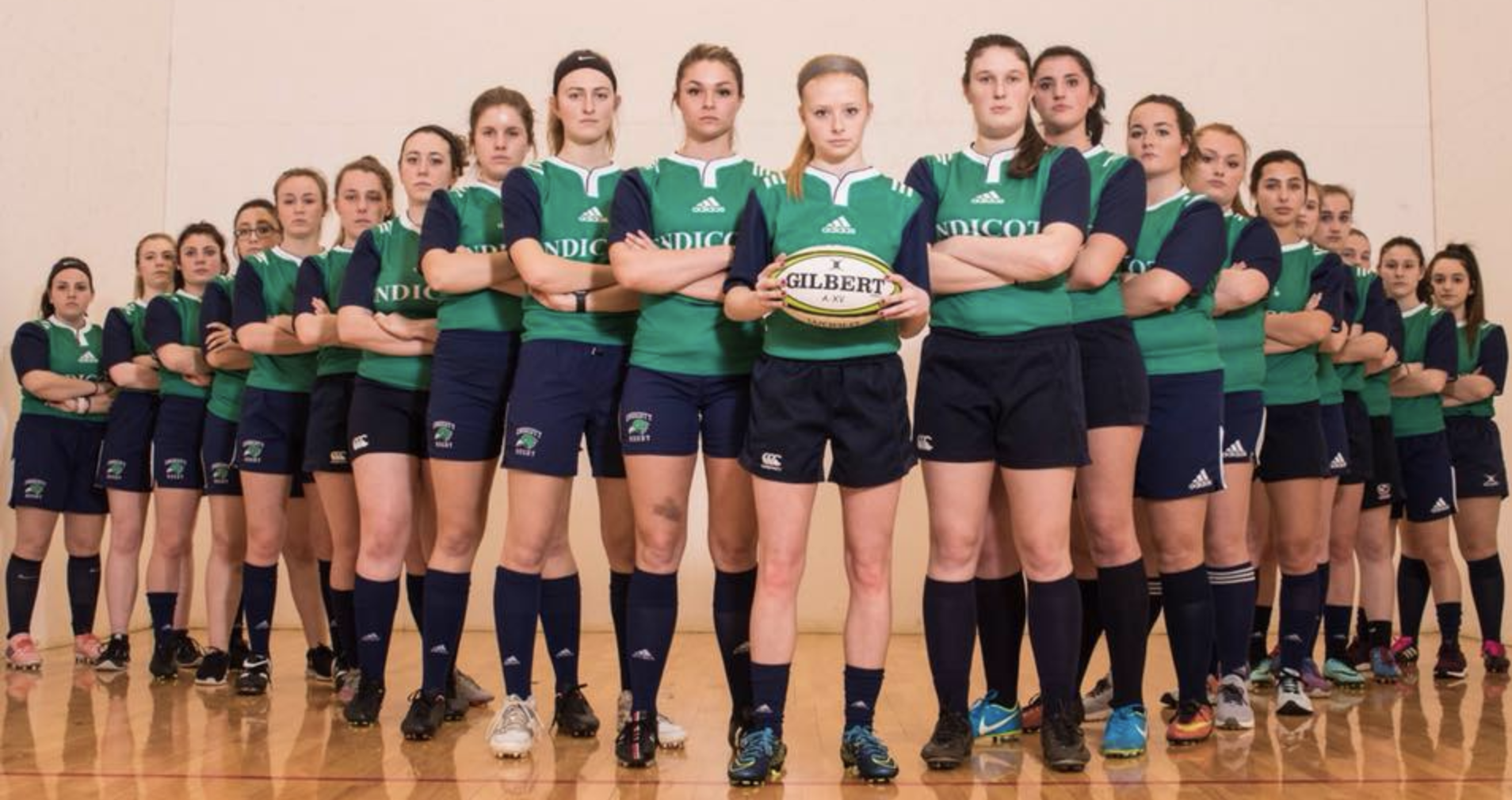
NSCRO 15s runner-up Bentley leads the NEC7C. / Photo courtesy Bentley Women’s Rugby
Chip Auscavitch was getting antsy. The 37-year-old Boston local had left his mark on U.S. rugby, co-founding the National Small College Rugby Organization (NSCRO) and the first DII college conference recognized by USA Rugby, among other contributions. When he stepped down as Rugby Northeast commissioner, he envisioned his rugby future as a fan and referee, but before long, that desire to create, organize and grow competition re-emerged.
RELATED: NSC7C Schedule, Standings & Results (download) • NSCRO Home • Support TRB: Become a Patron
Although no one was necessarily asking for it, Auscavitch foresaw the need for a structured collegiate 7s competition in his region.
“I was sick of teams winning a one-off tournament and taking that automatic qualifier straight to nationals,” Auscavitch referenced the means by which many conferences name their representatives. “I wanted more tournaments over the course of a season, which would reflect the more committed teams. Play would improve, and the best team would come out over multiple tournaments.”
And so Auscavitch designed the New England Collegiate 7s Circuit (NEC7C), a series of spring 7s tournaments that involves DII and NSCRO teams across multiple conferences. He kept his plans modest and flexible as he started communicating with teams in late December, limiting the geographic boundaries to the Boston area north to Manchester, N.H. The women’s teams generally were more responsive, and thus Auscavitch pursued the women’s competition as proof of concept.

Endicott’s built a nice body work over the spring 7s season. / Photo courtesy Endicott Women’s Rugby
Thirteen teams signed on as members. They paid $20 each to participate and a $300 deposit that will be refunded when certain participation requirements, designed to discourage forfeits or no-shows, are satisfied. There are no tournament fees either. Instead, each team must host and pay for a tournament, and then compete in at least three series events.
Initially, the NEC7C called for 11 tournaments, but weather canceled two for a total of nine. Tournaments are held Friday-Sunday and never on the same day. Teams can attend whichever events they want, and a program can field multiple sides that bank standings points for a single team. NSCRO recognized the series as an automatic qualifier, and so the highest ranking NSCRO-eligible team will advance to the 16-team national championship in Pittsburgh April 28-29.
“I want this circuit to be like a regular season for 7s that leads into conference championships,” Auscavitch explained how his vision married regional play with leagues that held automatic qualifiers. “Those teams going to nationals wouldn’t just be conference champions; they’d have a full season of 7s behind them. The second- and third-place teams in a conference will also have had a good season and a body of work to present for an at-large bid. ‘We played 37 games, and have this record, and lost by a conversion in the final.’”
Auscavitch handles all of the tournament schedules and balancing of pools, careful to vary teams’ opponents to keep it fresh. When vacancies did arise, he reached out to non-members, and now that they’ve sampled the series and understand its structure, they want in for 2019. Ultimately, Auscavitch wants to run men’s and women’s series for the entirety of New England.
Auscavitch is a fantastic administrator and recaps the most recent leg’s results and updated standings on Sunday night (click here to download the most recent standings and history of results). Teams know where they and their opponents stand, what their schedules look like, and what’s at stake. He’s attended every tournament so far and is putting new names to new faces. He’s noticed that coaches are interacting more as well, and the players are following suit.
“I didn’t expect to name an all-conference team but since I’m getting a feel for the better teams and better players, I can do so at the end of the season,” Auscavitch was pleasantly surprised.
Three more tournaments occur this weekend and the inaugural season ends Sunday. Standings-topper Bentley “is the clear-cut leader,” Auscavitch said, while Bryant, Stonehill and Endicott follow and trade victories. Colby-Sawyer, a late addition, and New Hampshire fall in just beneath them, and Providence is good when they have numbers.
The first NEC7C season wasn’t without hiccups – for example, Auscavitch learned it’s best to host early-season events on turf fields that can be plowed instead of grass pitches that force cancelations during the snowy season. But those adjustments are easily made and do not outweigh the positives. Auscavitch will do a full assessment after the season ends, polling teams for feedback and applying them to year two. In the meantime, the NEC7C will keep an eye on its champion at the NSCRO national 7s championship and see what a season’s worth of 7s does for a team’s readiness.

